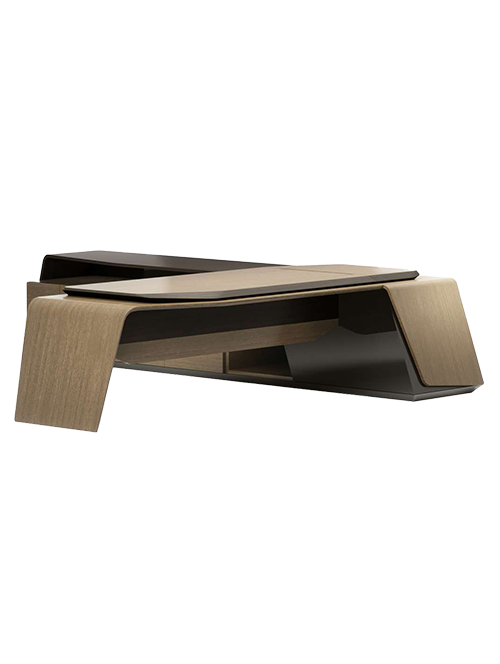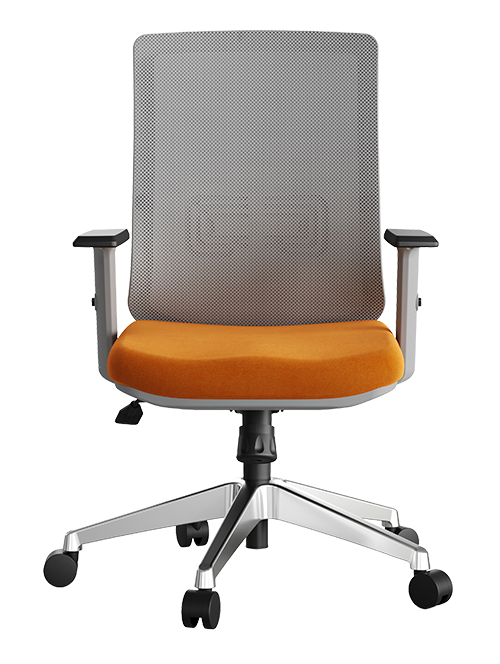Furniture Consideration : To Welcome & Support Neurodiversity
As students of and enthusiasts for workplaces, we are aware of the mindfulness towards health, wellness, and inclusivity that are fundamental to creating spaces that are productive, creative, as well as welcoming for a diverse workforce. In many ways, the places where we work have become extensions of who we are and what we represent – we bring our thoughts, feelings, challenges (and sometimes furry and/or human dependents) with us when we ‘punch the clock.’
It is no longer an option to overlook the impact of space on the people who occupy it. Considerations for neurodiversity are a paramount part of this conversation.
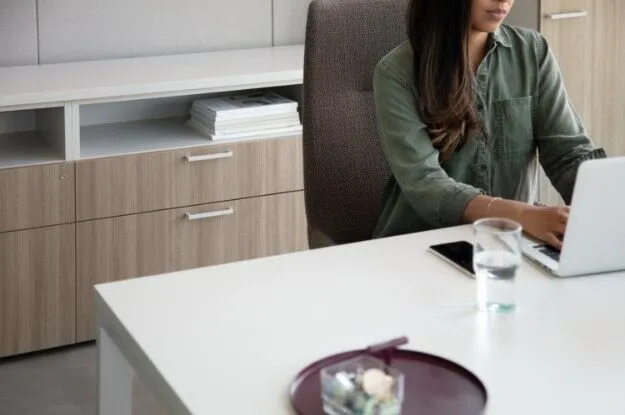
To oversimplify, neurodiversity is an appreciation and understanding that there are vast differences in the ways our brains process inputs. Discussions about neurodiversity often focus on considerations for cognitive disabilities but may also include considerations for more subtle differences in the way we respond to inputs from the world – inputs like color, sound, smell, and space.
Equitable, productive, and comfortable space design should be considered holistically and on multiple dimensions including formal policy, workplace culture, psychological safety, and larger space design. Here, considerations for furniture will be presented in the context of welcoming and supporting a neurodiverse workforce.
Proper Fit – Ergonomics
Seating, worksurfaces, and work tools should have the capability to be properly adjusted and positioned to promote healthy and comfortable working postures. Products should be designed to support a broad spectrum of individuals and should be intuitive to use for all. Surface and seating pairings should also be considered to allow for sufficient clearances.
Additionally, the product aesthetic should visually communicate that it is usable. Products that are overly narrow, low, reclined, or that have complicated color and materiality may add complexity and have the potential to increase anxiety about whether the product is usable for all.
Main Point: Furniture should not distract, but instead create comfortable and healthy work postures.
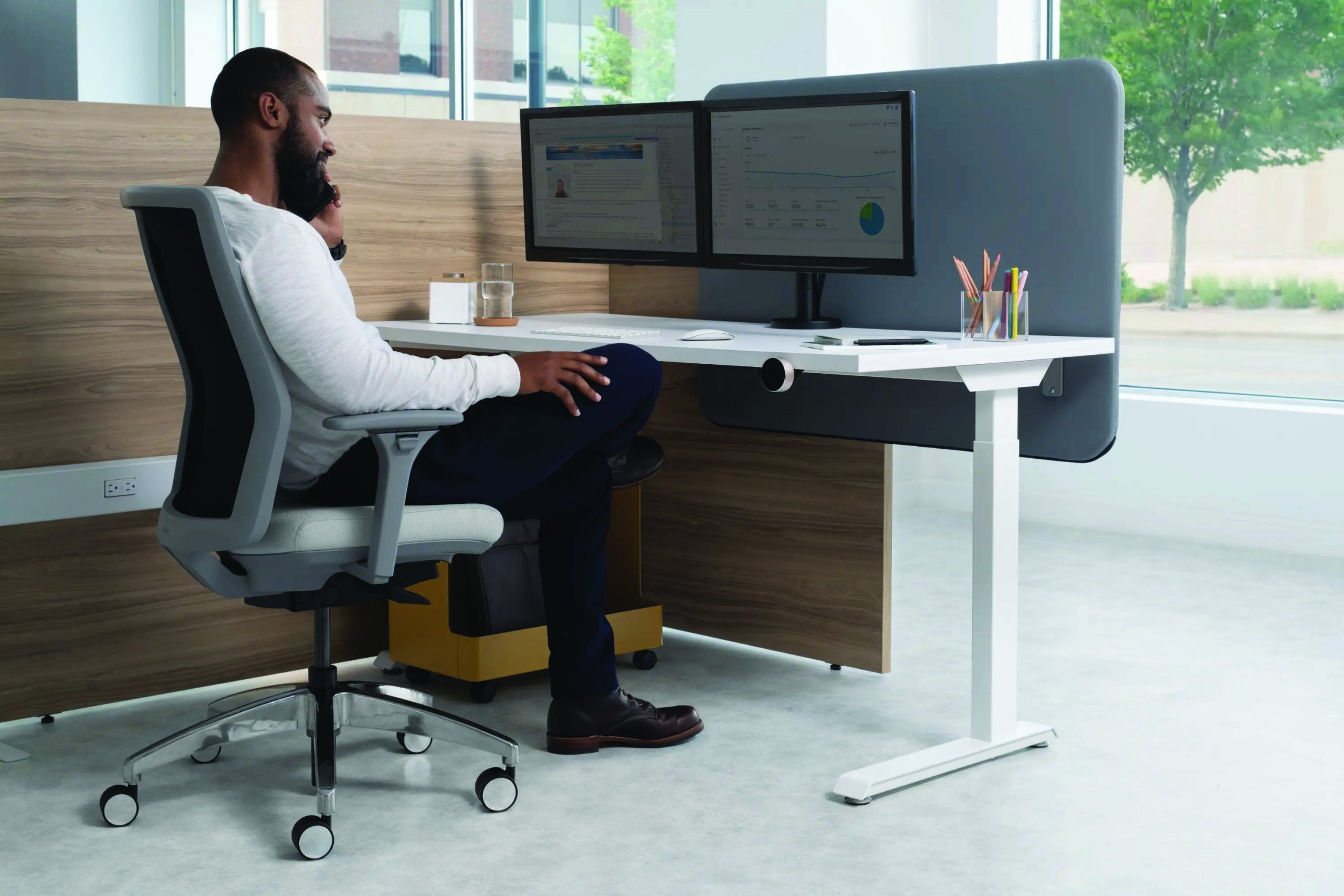
Options for Privacy
While offices are increasingly focused on social activities like collaborating and impromptu interactions, it is important to remember to also provide opportunities for privacy. Many employees will require places of refuge and low stimulation, even if it is for a short duration. Architectural walls can divide open spaces. Additions of acoustic solutions that foster speech privacy can increase the perception of solitude and privacy. When dedicated areas are not permitted, furniture can be used to block distraction and provide a retreat.
Main Point: Areas of interest and complexity should be balanced with opportunities with lower stimulation and focused, individual work or decompression.
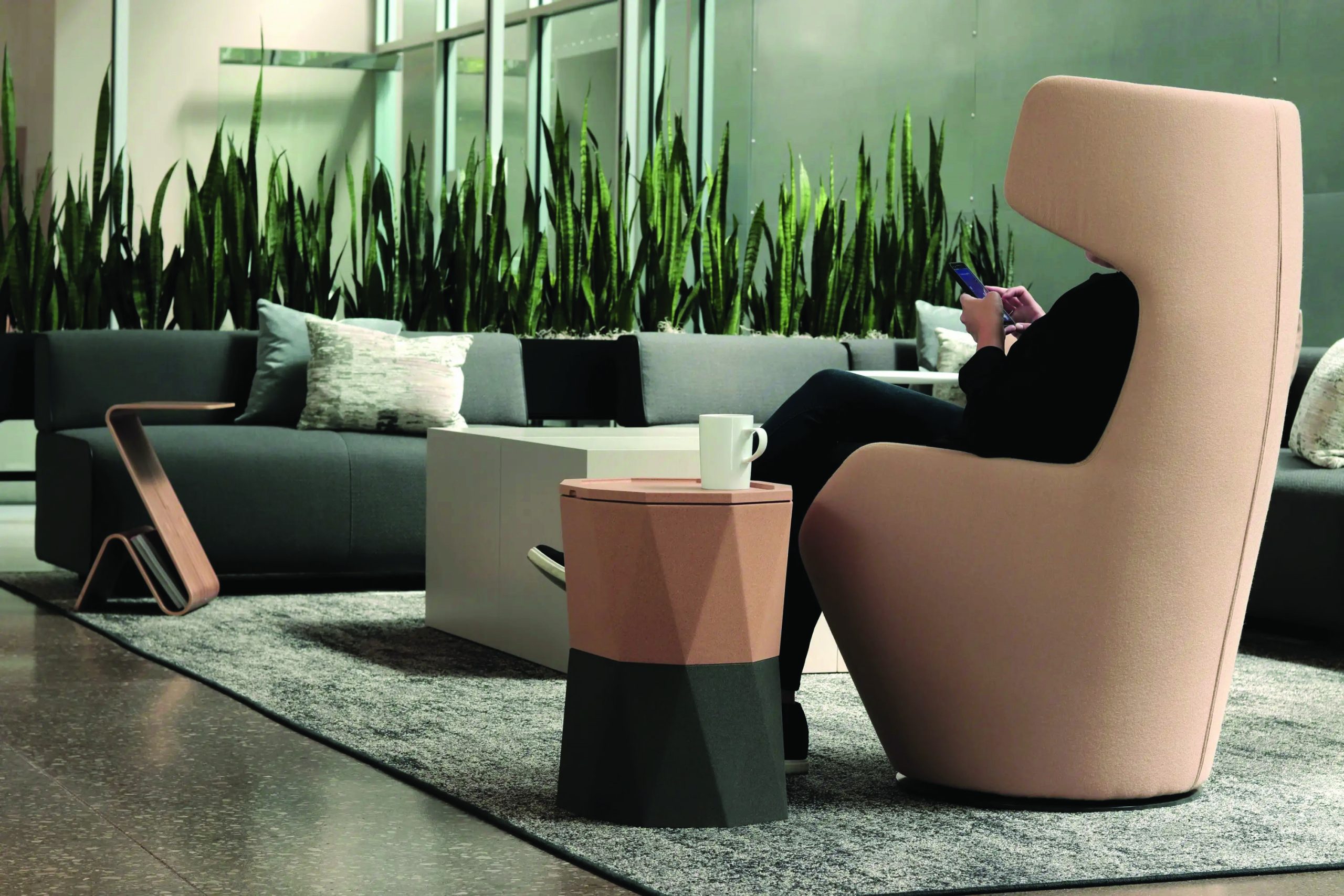
Options for Movement
The benefits of dynamic movement are well understood for all individuals. In addition to physical benefits, movement can have cognitive benefits as well. Movement can be helpful for some individuals in allowing focus, promoting attention, and processing information. Additionally, providing furniture that promotes movement in a way that is available for all (i.e., not classified as a special product for certain individuals) promotes a culture where fidgeting and movement is common and accepted, and use of mobile furniture is considered universal and productive.
Main Point: Furniture that allows fosters movement can be a universally helpful consideration.

Air Quality
Air quality has been of paramount interest of late, due to the necessity to mitigate disease. However, air quality has always been and will continue to be important to our health. Research has shown that cognitive function and productivity are supported by better air quality. It is also suggested that proper air quality can be especially impactful to those with compromised immunities or other disabilities.
Consider the contribution of furniture to the air quality of your environment. Products that minimize VOCs can promote wellness.
Main Point: Furniture can contribute to air quality, an important consideration for all and especially those with compromised immunities.
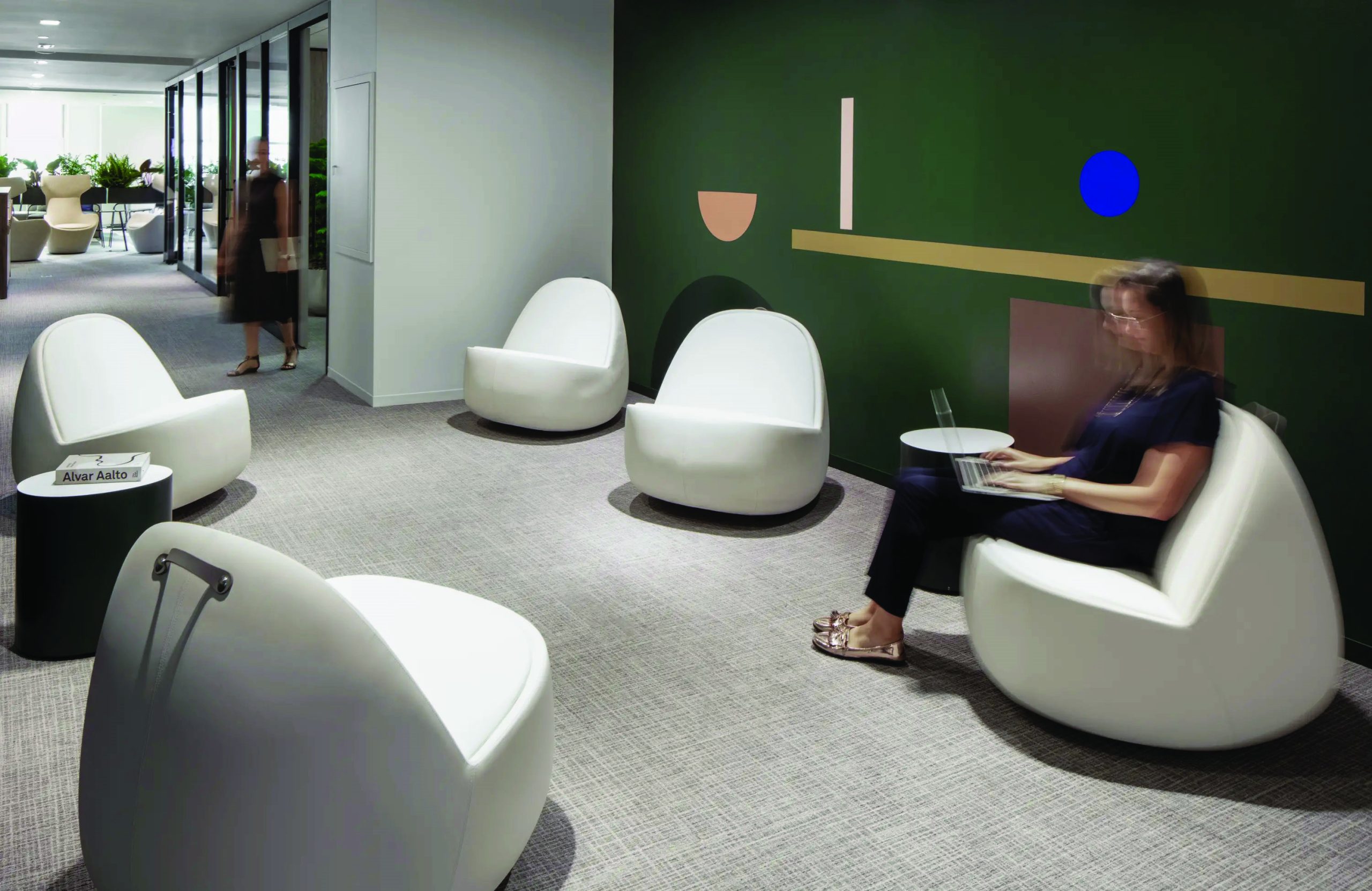
Furniture will be a vital consideration when developing inclusive workspaces. The considerations here may offer insights to support a neurodiverse workforce.
Beyond product and space, supporting a neurodiverse workforce requires a culture that is inclusive, policies that are equitable, and an environment that holistically welcomes, fosters, and supports diversity and psychological safety. Careful design of a space can communicate a welcomeness and preparedness to be diverse and inclusive.
Considering working environments holistically may also provide a stress-reduced space where people feel like their needs are being met. Employees may not have to worry as much about how they will navigate the space. People can focus instead on being productive, and most importantly, being themselves.
